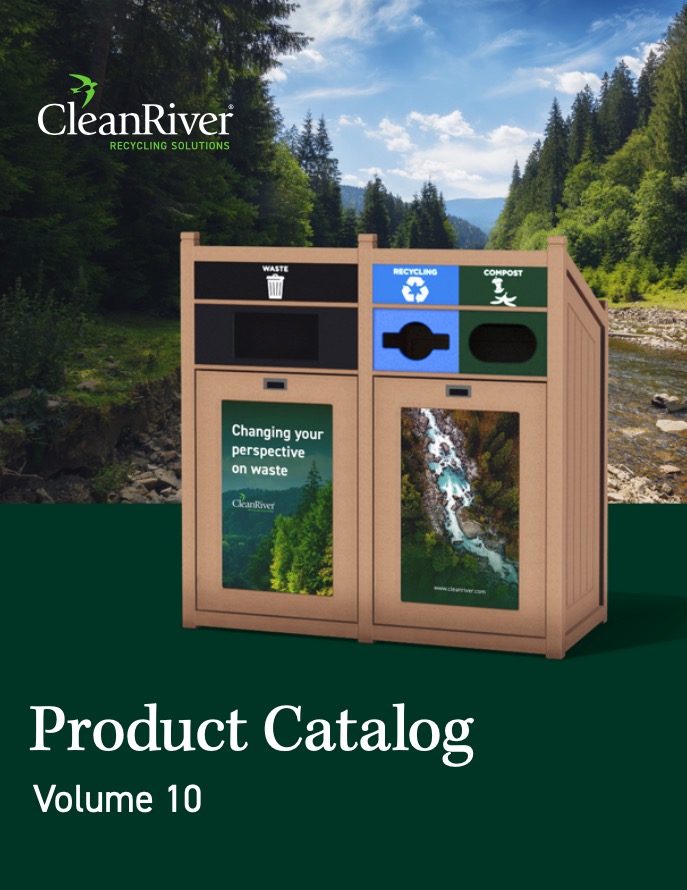Creating a more sustainable and environmentally friendly business landscape begins with understanding the crucial role of recycling. As states across the U.S. implement various regulations and offer different incentives for recycling, navigating these can be complex for businesses looking to enhance their sustainability practices.
Whether you're a small startup in California, a bustling restaurant in New York, or a corporate office in Texas, understanding your state's recycling requirements is the first step towards making a significant environmental impact.
In this guide, we will equip you with the knowledge and tools necessary to navigate the complex terrain of waste management regulations effectively.
What are Recycling Laws?
Recycling laws are regulations put in place by federal, state, and local governments to manage waste effectively, reduce environmental impact, and promote recycling initiatives. These laws vary from region to region but generally encompass landfill bans, recycling goals, and mandates for specific waste streams. For businesses, understanding the intricacies of these laws is essential to ensure compliance and minimize the risk of penalties or legal repercussions. Moreover, embracing recycling laws presents an opportunity for businesses to demonstrate their commitment to sustainability, enhance their brand reputation, and contribute to the global effort to combat climate change.Implications for Businesses
The implications of recycling laws for businesses extend far beyond mere legal compliance. Embracing these regulations presents a unique opportunity for businesses to align their operations with sustainable practices, enhance brand reputation, and capitalize on emerging market trends favouring eco-conscious consumerism. Let's delve deeper into the key implications of recycling laws for businesses.States with Recycling Laws and Regulations
- California’s SB1383 and State Assembly Bill (AB) 827: SB 1383 regulations require that jurisdictions conduct education and outreach on organics recycling to all residents, businesses, haulers, solid waste facilities, and local food banks and other food recovery organizations. AB 827 requires businesses subject to AB 1826 and AB 341 to provide customers with easily accessible recycling and organics collection bins or containers to collect these materials generated from products purchased on the premises.
- Connecticut (HB 7249): Creates a mandatory recycling program for discarded covered electronic devices (CEDs) with manufacturers responsible for financing the collection, transportation, and recycling. Effective from January 1, 2009. Final bill language
- Hawaii (SB 2843): Requires new CED manufacturers to register and pay a fee, with annual submission of a recycling program plan. Effective from July 1, 2008. Final bill language.
- Illinois (SB 2313): Manufacturers must establish e-waste facilities for consumer disposal, with civil penalties for violations. Effective immediately. Final bill language.
- Indiana (HB 1589): Mandates manufacturers to collect and recycle a percentage of their sold products, with additional fees for non-compliance. Effective from April 2010. Final bill language.
- Maine (LD 1892): Requires manufacturers to fund the recycling of waste computer and television monitors. Effective from January 18, 2006. Summary of Maine's e-waste law.
- Maryland (HB 575 & HB 488): Establishes a manufacturer-funded collection system, updated to include TVs. Effective from January 1, 2006. Summary of Maryland's e-waste law.
- Michigan (HB 6714-6715; SB 896-897): Imposes a registration tax on manufacturers of certain electronics, who must also establish recycling programs. Final version of the law.
- Minnesota (HF 854): Requires manufacturers to register and meet recycling goals for covered devices. Effective from August 2007. Final version of the law.
- Missouri (HF 854): Manufacturers of computers must implement recovery plans for recycling or reuse. Effective from August 28, 2008. Final version of the law.
- New Jersey (A3572): Manufacturers of covered devices must pay an annual fee and set up recycling programs. Effective immediately. Final version fo the law
- New York State (A11308): Establishes a manufacturer-financed recycling program for various electronic devices. Effective from April 1st, 2011. Final version of the law.
- North Carolina (S 1492): Manufacturers must cover the costs for transportation and recycling of covered devices. Effective from January 1, 2009. Final version of the law.
- Oklahoma (SB 1631): Requires proof of a computer recycling program for manufacturers. Effective from January 1, 2009. Final version of the law.
- Oregon (HB 2626): Manufacturers of CEDs must participate in recycling programs and provide collection sites. Effective from January 1, 2009. Final version of the law.
- Pennsylvania (H 708): Requires e-waste manufacturers to collect, transport, and recycle electronic equipment. Effective from Jan 23, 2011. Final version of the law.
- South Carolina (H4093): Establishes an Extended Producer Responsibility (EPR) program for electronic device recycling. Effective from July 1, 2011. Final version of the law.
- Texas (HB 2714): Manufacturers must pay for the recycling of covered devices and establish their own take-back program. Effective from September 1, 2008. Final version of the law.
- Vermont (SB 77): Bans landfill disposal of certain electronic devices and establishes a free recycling program. Effective from July 1, 2011. Final version of the law.
- Virginia (HB 344): Requires manufacturers to set up free recycling and reuse collection systems for computer equipment. Effective from July 1, 2009. Final version of the law.
- West Virginia (SB 746): Requires manufacturers to develop recycling programs, funded by registration fees. Effective from July 2008.Chaptered Legislation.
